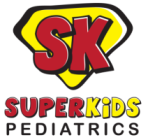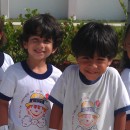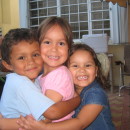Hand, Foot & Mouth Disease: What is it? What to do? When to go back to child care or school?
November 21, 2016We are facing a concerning rise in Hand-Foot and Mouth Disease (HFMD) with outbreaks already called in several cities in the South Eastern US. HFMD affects hundreds of thousands of Americans every year and is proven to be a very resistant disease with flu-like symptoms, caused by different viruses.
HFMD is a viral illness, from the Enterovirus genus (group), that can be spread easily from contact with saliva or mucus, and is most common in summer and early fall. This is part of the reason infants and children are especially vulnerable in child care centers and schools environments, where they tend to sneeze openly, share toys with one another and saliva is commonly spread.
 From the time the child is exposed to HDMD, it takes 3 to 6 days to incubate and the first symptoms to show up. Fortunately, for healthy kids, the symptoms are unpleasant, but usually mild and not life-threatening. They can start with a fever, sore throats and runny nose. Its signature rash follows, as red spots with tiny blisters that appear most commonly on hands, feet, and mouth, but can also appear on legs and genitals. Blisters spots usually clears up on its own within one or two weeks. Peeling in the finger and toes can happen after 1 to 2 weeks, but it is
From the time the child is exposed to HDMD, it takes 3 to 6 days to incubate and the first symptoms to show up. Fortunately, for healthy kids, the symptoms are unpleasant, but usually mild and not life-threatening. They can start with a fever, sore throats and runny nose. Its signature rash follows, as red spots with tiny blisters that appear most commonly on hands, feet, and mouth, but can also appear on legs and genitals. Blisters spots usually clears up on its own within one or two weeks. Peeling in the finger and toes can happen after 1 to 2 weeks, but it is  harmless.
harmless.
Because it is highly contagious, it will require your child to stay home until the virus is fully out to keep it from spreading in our community. Remember that other kids and adults may have a weakened immune system and complications can be serious. If you suspect you or your child has it, visit your pediatrician for a proper diagnosis ruling out any other disease, create an action plan to relief symptoms and establish a return to school/work time.
“If you suspect you or your child has it, visit your pediatrician for a proper diagnosis ruling out any other disease, create an action plan to relief symptoms and establish a return to school/work time.”
People with a weakened immune system (with other diseases and senior citizens) can experience serious symptoms. In some rare cases, HFMD can lead to serious brain infections like meningitis and encephalitis, and the losing of fingernails or toenails.
When to go back to child care or school?
Children may shed the virus from the respiratory tract for 1-3 weeks, and in the stools for weeks to months after the infection starts. There are exclusion criteria for returning to school that are case by case based. Usually it is safe to return to school when the child is feeling well to participate in class with no fever, and blisters are dried up.
What to do?
- It is important to be extremely vigilant about hygiene practices. Make sure everyone is washing their hands after leaving the bathroom, and before touching any food. Teaching your children to cover their mouth when sneezing and not to bring objects or hands to the mouth is the best defend they can play in prevention.
- If one child has it, protect other children by preventing close contact like kissing, hugging, and sharing cups and utensils. If your children share a bedroom, separate them while the sick child is contagious.
- If HFMD is suspected, make sure to keep your child hydrated with plenty of fluids and rest. Because blisters can appear in mouth, some kids may experience pain when drinking or eating. A compound medicine and/or saline water as a mouth wash can be applied to alleviate mouth ulcer pain following your pediatrician recommendations. Avoid citric drinks and salty foods. Call your pediatrician or go to an ER immediately if you suspect your child is dehydrated.
- Treatment to relief symptoms, may include fever and pain reducers like acetaminophen or ibuprofen.
Resources:
Signs of dehydration in infants & children
CDC information on hand, Foot, and Mouth Disease
Acetaminophen and ibuprofen doses
by: Lizaida Medina Candelaria, MD FAAP
Dr. Medina is a Board Certified Pediatrician and an active member of the AAP and Palm Beach Pediatric Society.





